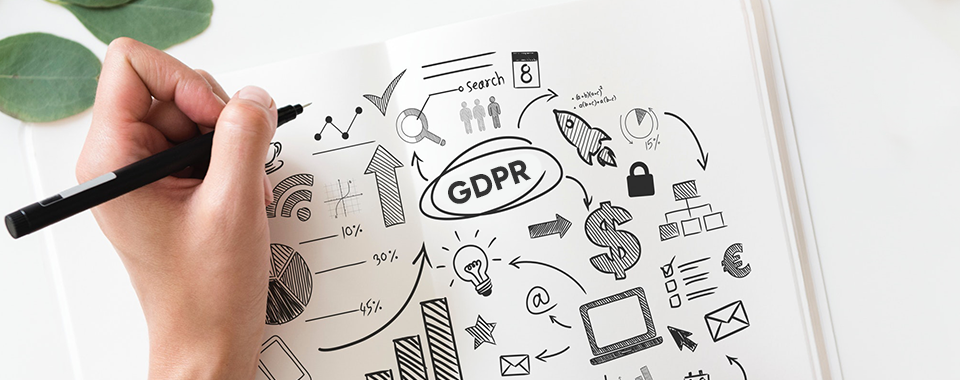
Win-win opportunity under the sign of GDPR
Yesterday afternoon I was standing in front of the vending machine ready to grab a coffee when, taken from a technological euphoria, I decided to download an app that basically has the same function as the traditional key: it allows you to save a few cents, while preventing you from spending hours searching for coins scattered in the bag. At that point I got stuck. Maybe due to a professional bias or to the lack of caffeine, I noticed that this app required access to my device, to multimedia data and to a whole series of other personal data, in order to “allow it to work”.
Reading the very long privacy policy, I found out that using the app is not possible without giving consent to the processing of data for marketing and profiling purposes.
While I was drinking my coffee (paid with a traditional and anonymous coin), I thought we must be aware by now that there is a market for personal data and that this market is characterized by a high value and a very high information asymmetry. In the example above, it is crystal clear that, just for a meager discount on my coffee, I would have (unconsciously) sold many of my personal data to a company that would have taken value out of it. But this happens on a daily basis: we provide our data in exchange for games that make us company on the train or in exchange for useless apps that we get rid of just after a couple of weeks. What value do we give to these games, to these apps? What value do we give to our data? And, above all, are we sure that the value we give to our data is in line with that of the market? Put another way, we know how much a lemon, a liter of milk, a car is worth, but we have no idea how much the list of our contacts or the list of Facebook pages we like is worth. After all, we underestimate our value as people and, more specifically, as actors that consume and spend.
What value do we give to our data? And, above all, are we sure that the value we give to our data is in line with that of the market?
So, what? We deny privacy consents and we move to a village in the Himalayas (where however, I can assure you, you would find Wi-Fi and all inhabitants registered on Facebook)? It seems to me at least unrealistic. Each of us has now a virtual identity with corresponding interests, preferences and opinions; it is an irreversible process that brings along undeniable benefits that we like, after all.
Furthermore, it is clear today that it is possible to create value out of the correct processing of data. I have always had a broad idea of this potential; however, since I have started working in U-Hopper, I am 100% sure. In fact, I realized that the ability to value data and know how to do it properly is the decisive factor to differentiate between a company that successfully looks to the future and the one that, instead, stays behind.
The point, therefore, is not to demonize this market! Indeed, we need to enhance it.
The right path is the creation of a fairer and more transparent market where the processing of data generates value in a legitimate and ethical way, while reducing as much as possible the existing information asymmetry.
In this process, like a lighthouse in the night (at least in Europe), we can rely on the European Regulation. The GDPR has forced companies to finally deal with data processing; this year (almost) all companies and professionals have had to identify which personal data is being processed, how and why. They had to assess the risk regarding the data treatment and take appropriate safety measures. Was that worth it? It depends on how this action was interpreted.
Companies that already knew the value of data faced a number of limitations. Most of those that, on the other hand, were completely unaware, interpreted the legislation as a heap of bureaucratic obligations and expenses. People got their mailboxes overwhelmed by updated informative privacy policies, and they might have started wondering who ever they had sold their data to in last few years. Well, now that the individual is more protected, now that many consents have been withdrawn, and people are beginning to be aware of the value of their data, it is time to take stock: we need to turn the effort into money!
Companies should try to understand what data is useful to them, how to use it properly and how to encourage people to authorize treatment, guaranteeing transparency, security and, why not, a fair compensation.
And, not surprisingly, there exists already Apps that allow you to sell your data (yes, sell!), by selecting what to provide and to whom, in a transparent and (hopefully) safe way, in exchange for money or personalized services.
For many years, individuals have been the passive subjects of the system; but today, they can become real market players: owners of their “data package” to sell (in full knowledge of the facts) to the highest bidder.
And in U-Hopper we found a way to create a win-win situation! With tapoi, users’ personal data is used in full transparency, upon active consent, to create personalized offers. For real!
Find out all the details on tapoi’s website!
Did you enjoy this article?
Enter your e-mail address to receive our newsletter!
PS: don’t worry, we hate spam just as much as you do. We’ll send you just a couple of emails a year with a collection of the most interesting articles, it’s a promise!
